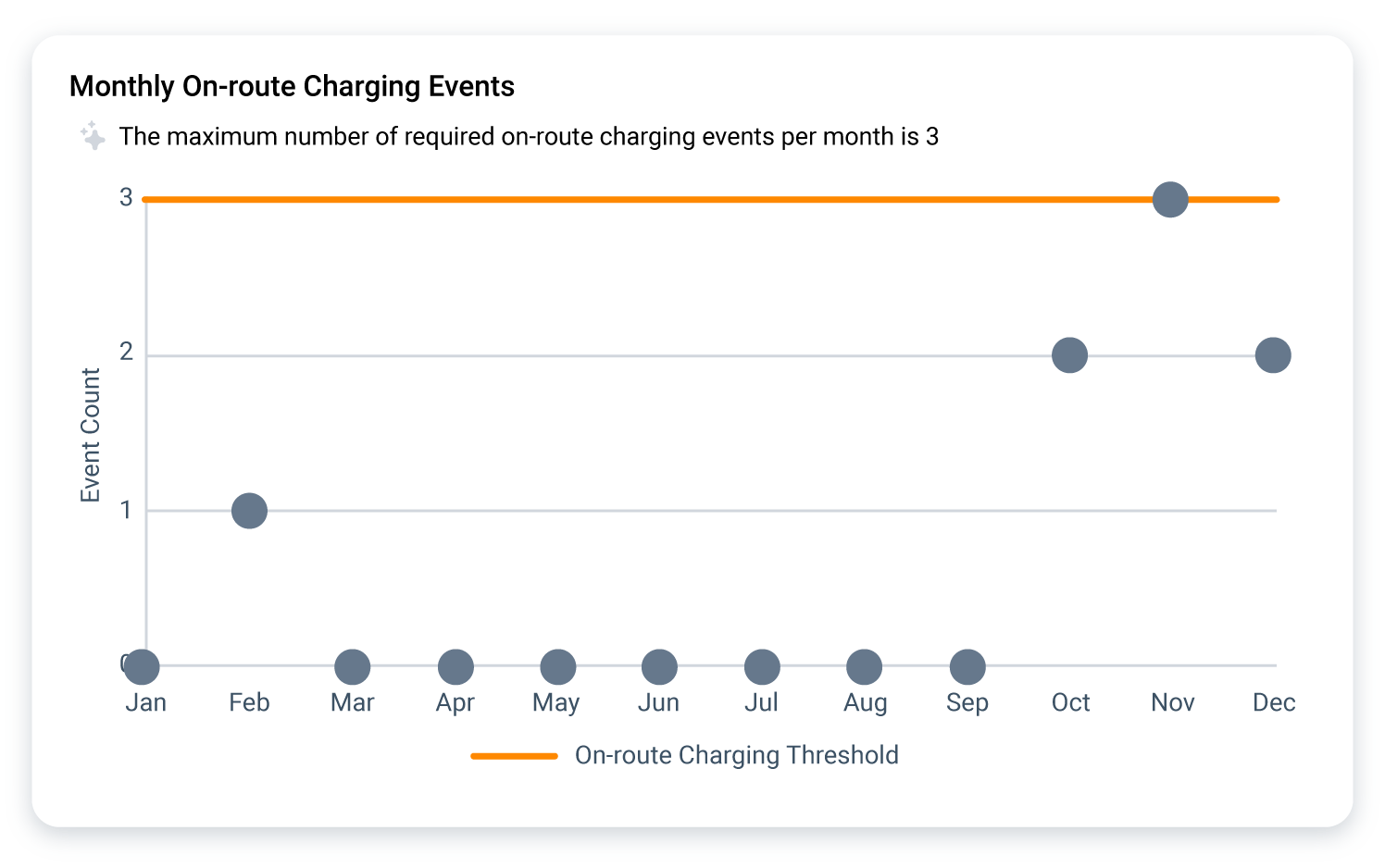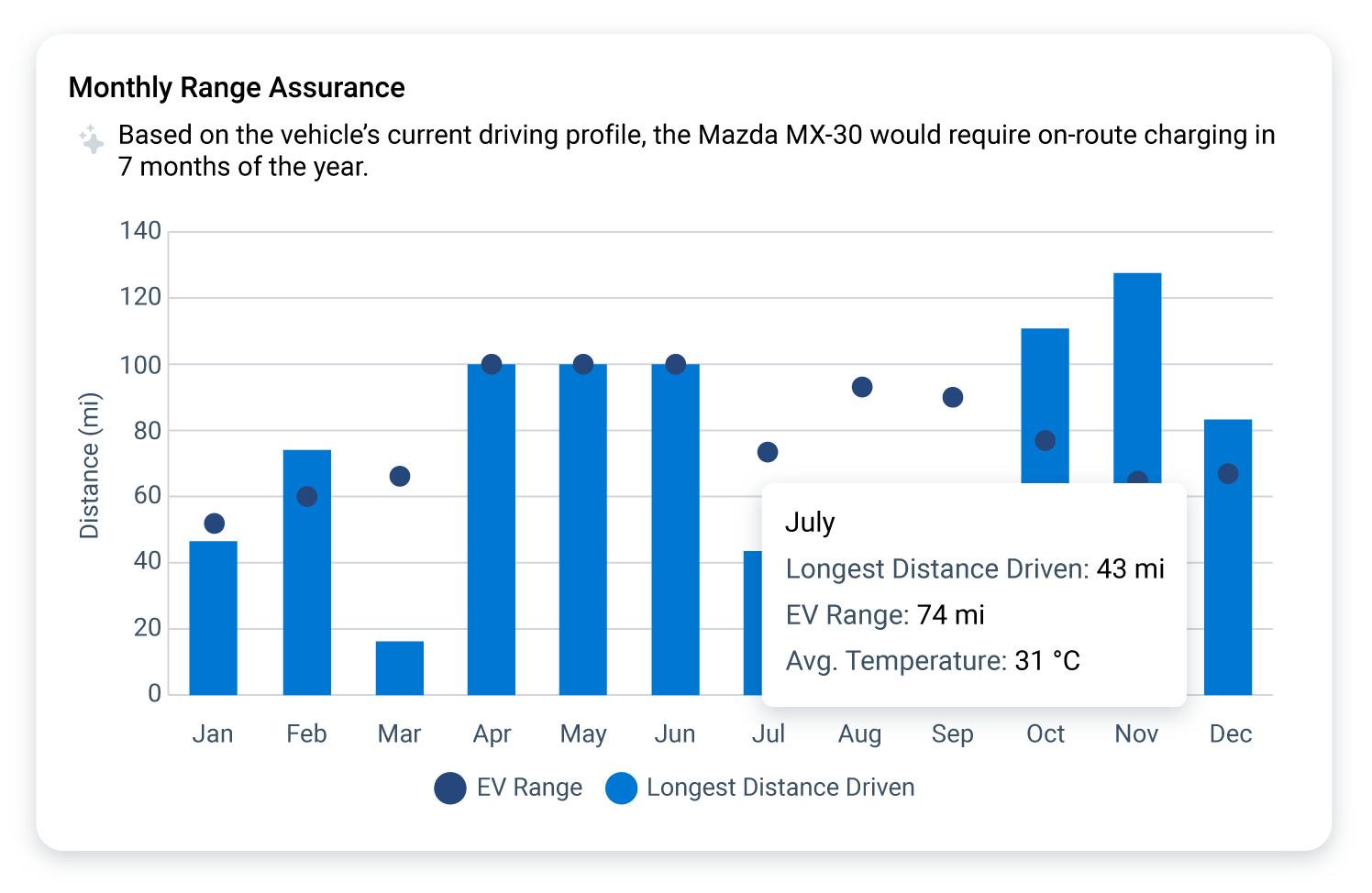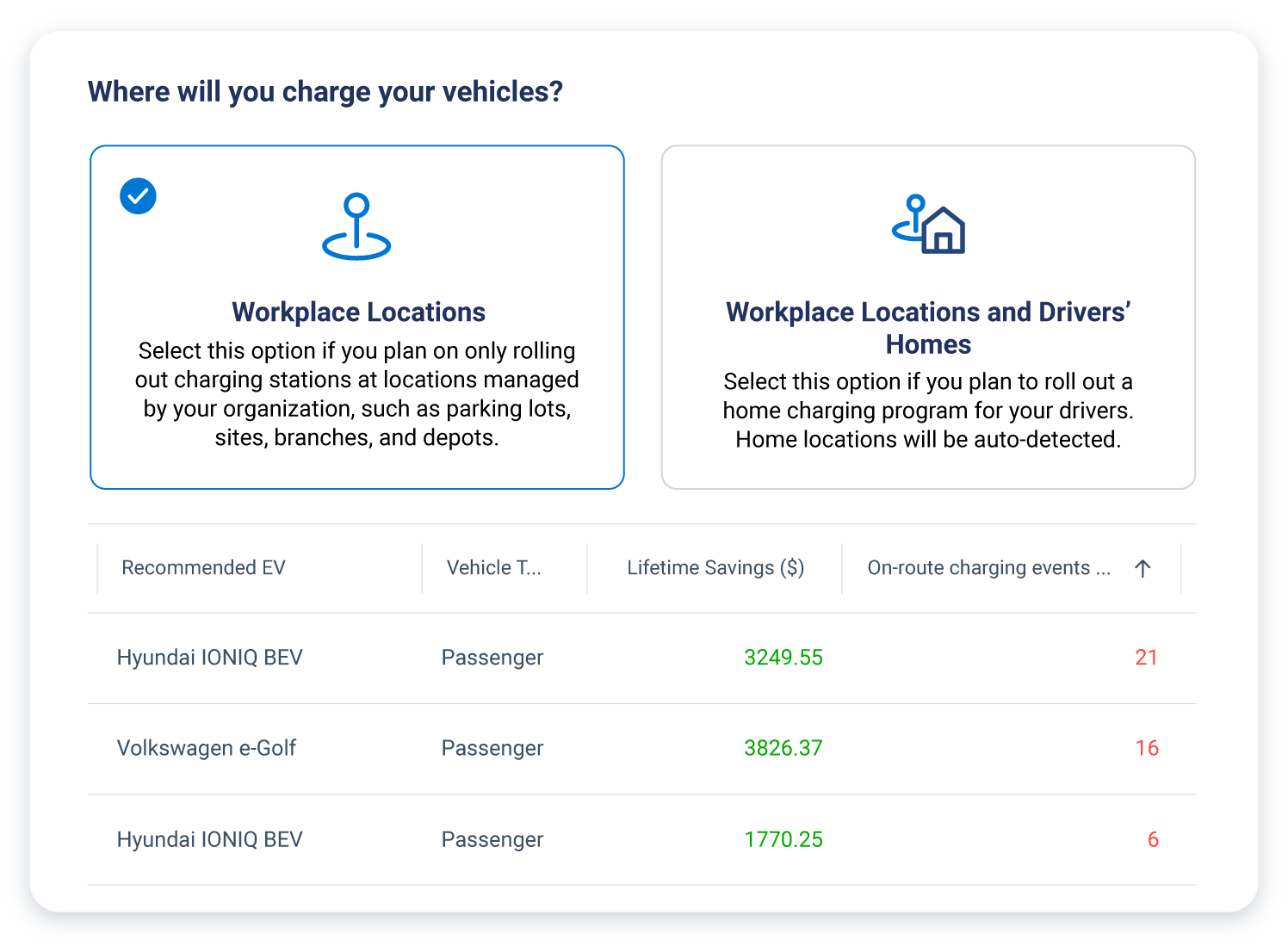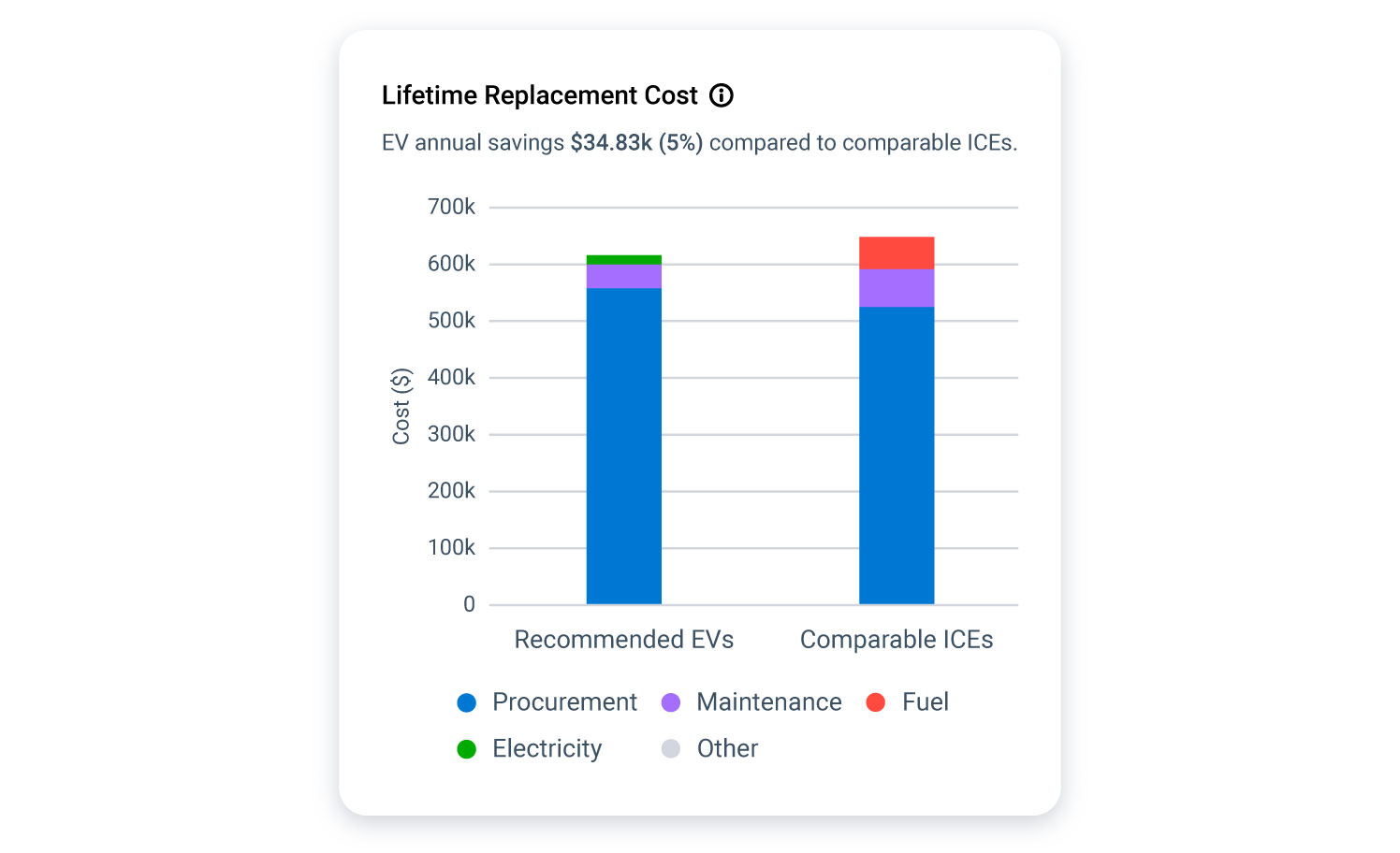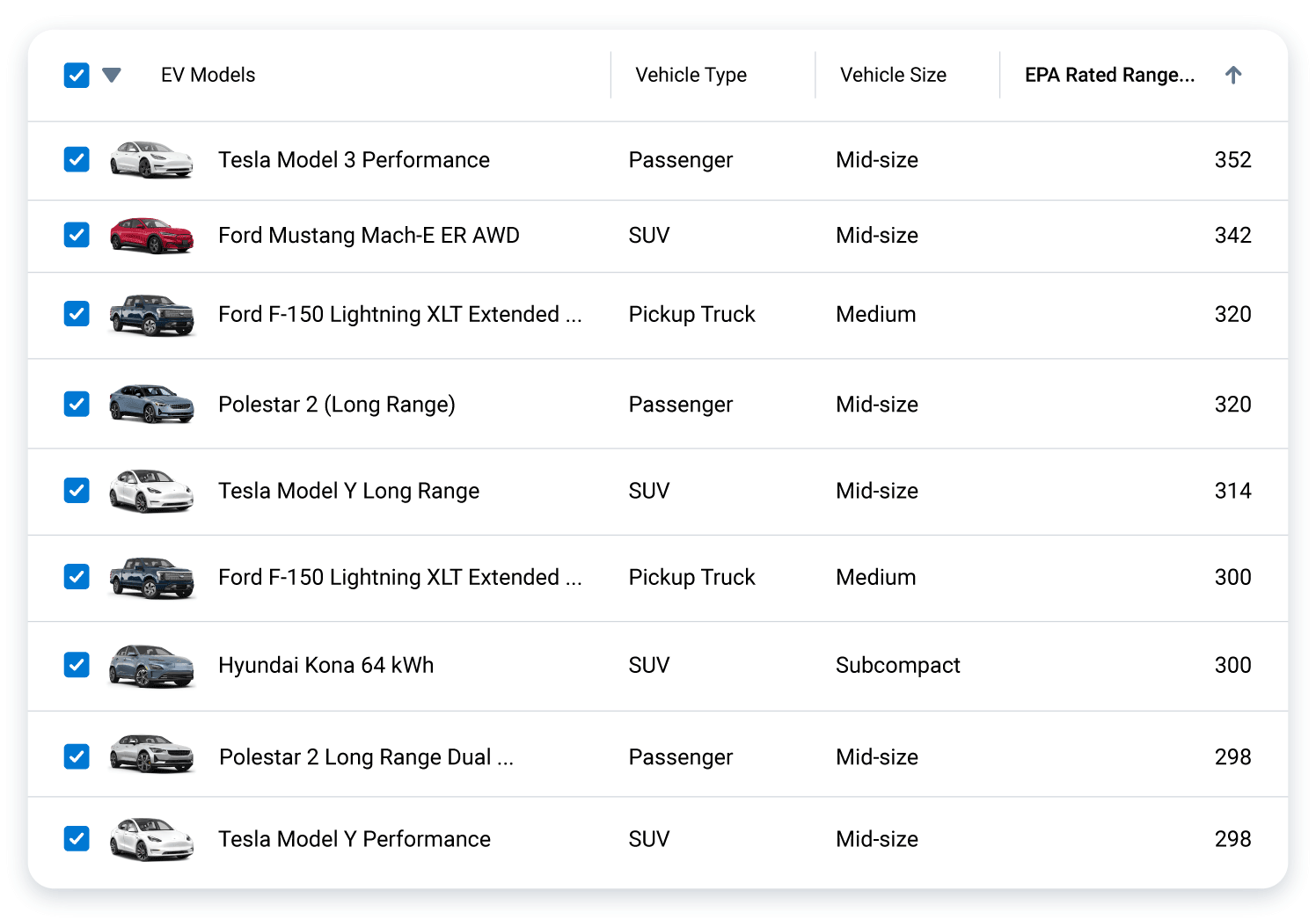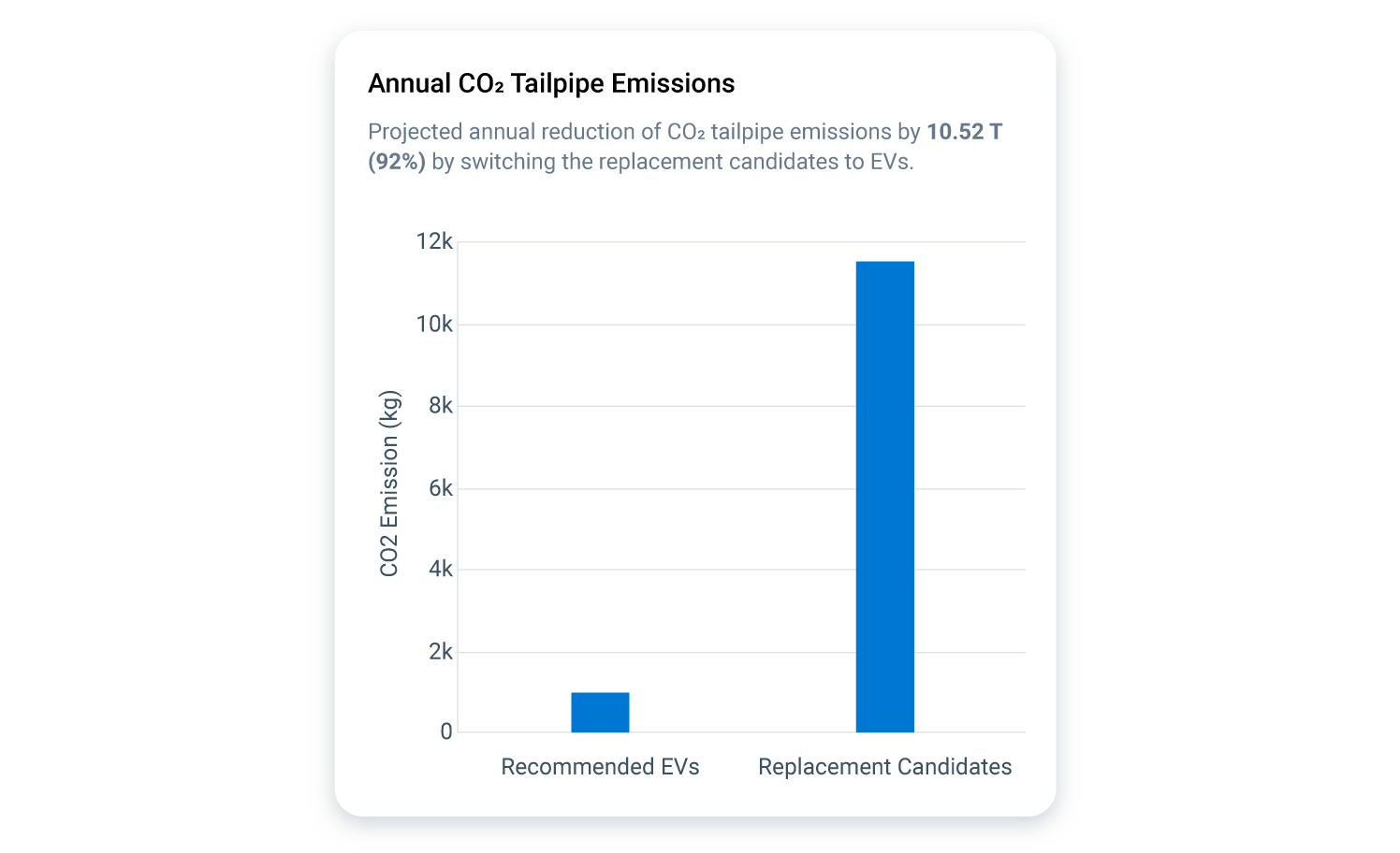EVSA
EV Suitability Assessment
Eliminate range anxiety: Real-world data on vehicles, temperatures and driving patterns help to maximize zero-emission miles.
Identify best-fit EVs: EVSA auto-detects your fleet vehicles to easily find local-market best-fit EV recommendations.
Tailor your charging strategy: EVSA considers charging locations, fleet preferences, state of charge and dwell times.
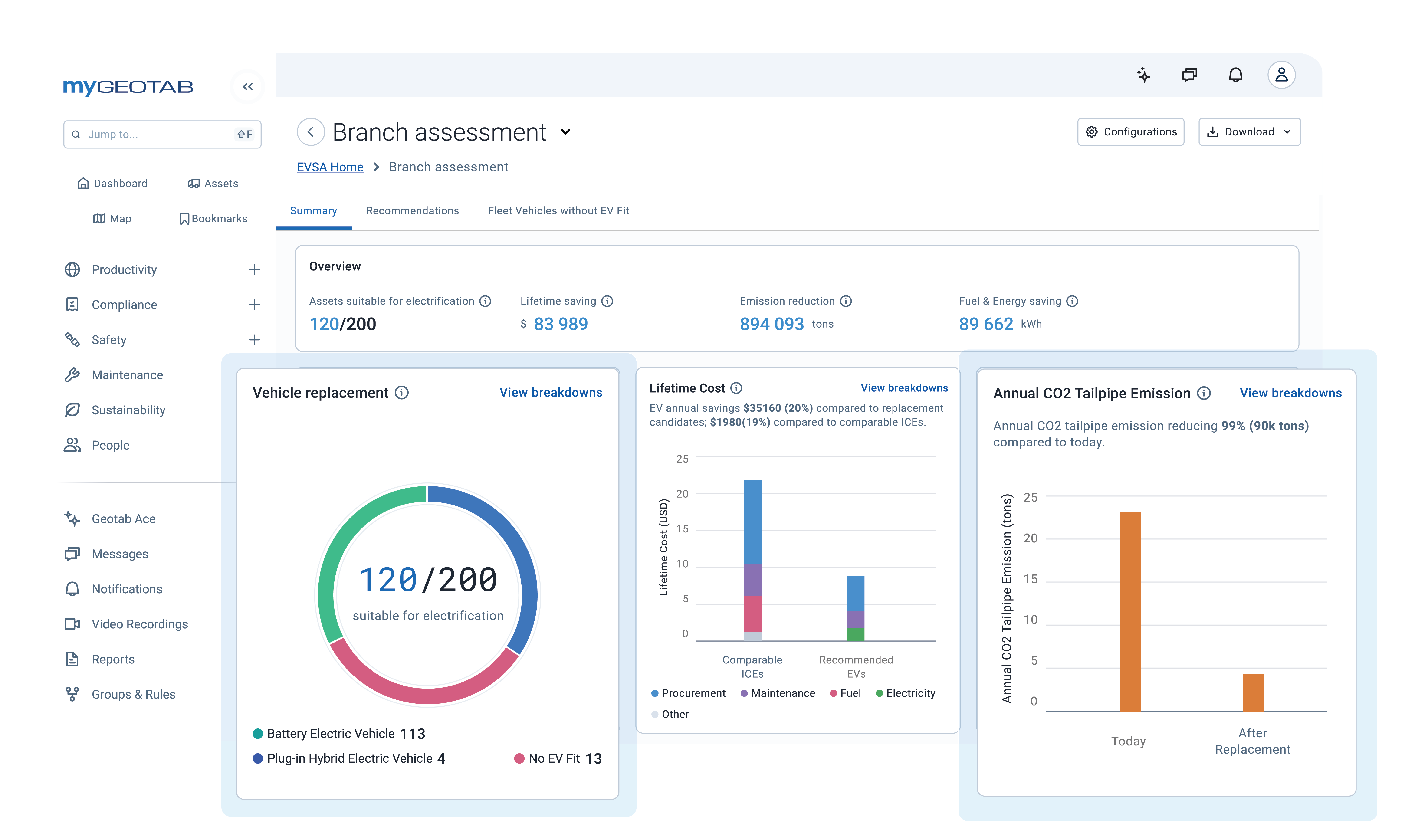
Simplify your EV transition
The EVSA offers a tailored roadmap to electrify your fleet, driven by real-world data. Identify the perfect EV candidates, create solid financial forecasts and effortlessly choose the right EVs from local markets. Our comprehensive solution helps fleets reduce emissions, find cost savings and ensure performance excellence, making fleet electrification a breeze.
- Build the business case: Reliable financial forecasts and comparisons support your electrification business case.
- Streamlined process: EVSA has a new and simplified interface and comes auto-installed in the MyGeotab platform.
30%
reduction in greenhouse gas emissions
Natural Resources Canada
35%
increase in fuel economy
United Utilities
Electrification options for any fleet scenario
Say goodbye to EV guesswork
Case study
Enterprise Fleet Management: Uncovering the potential of fleet electrification
Working together, Enterprise Fleet Management and Geotab conducted one of the largest fleet EV Suitability Assessments (EVSA). This massive study was designed to better understand how the shift to EVs will affect Enterprise Fleet Management’s business today and in the future.
$33m
194k
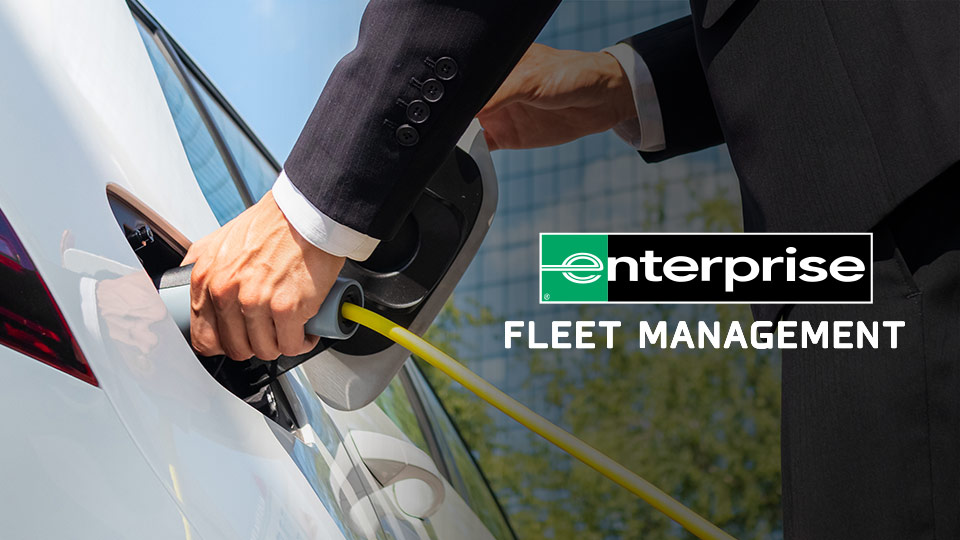
Research report
Taking Charge: On the road to the EV future
Our latest research finds:
- 41% of light-duty vehicles can be economically electrified with average TCO savings of $15,900 per vehicle.
- 43% of medium-duty and 58% of heavy-duty trucks drive less than 200 miles per day — well within the capability of current EVs.
Learn which vehicles are best suited for electrification and the potential cost and emissions savings, plus essential best practices.
Fleet Electrification Knowledge Center
Navigate your transition to EVs

Commonly asked questions
What is an Electric Vehicle Suitability Assessment?
An Electric Vehicle Suitability Assessment (EVSA) provides an electrification recommendation based on your fleet's unique needs. Geotab’s EVSA analyses your fleet’s telematics data to create an EV adoption recommendation based on each vehicle’s distinctive driving patterns, taking into consideration range capability and total cost of ownership. It uses real-world EV performance data to determine which vehicles in your fleet have a suitable EV replacement, while highlighting the financial and environmental impact of making the switch.
What is the role of telematics in an EVSA?
Telematics is a key component in determining a fleet's electrification potential via an EV Suitability Assessment (EVSA). Before doing an EVSA, Geotab's telematics device records the driving patterns of the fleet's gas and diesel vehicles to use as a basis for the assessment. During an EVSA, Geotab taps into telematics data to compare which EV models can best service the fleet's range requirements. The EVSA leverages:
- the largest set of real-world EV performance data
- ratings from the EPA and WLTP on upcoming EV models, and
- data on speed, trip patterns (e.g. idling) and environmental factors like localized ambient temperature for increased accuracy.
What does EVSA stand for?
EVSA stands for Electric Vehicle Suitability Assessment. It is a tool that helps fleet managers create a blueprint for electrification. The EVSA delivers the data analysis needed to make the case to transition a fleet to electric in a way that makes sense for the fleet's needs, organization's budget and time frame.
What are the benefits of an Electric Vehicle Suitability Assessment?
A key benefit of an Electric Vehicle Suitability Assessment is that it can save fleet managers time by making it easy to pinpoint fleet vehicles that can be replaced by an equivalent EV based on their function and range requirements. The EVSA compares EVs based on factors such as:
• Total cost of ownership (includes retail price, maintenance costs, fuel/electricity costs and other expenses)
• EV type (Battery Electric vs. Plug-in Hybrid)
• Vehicle class
• Range
• Local availability
What is an electric vehicle adoption report?
An electric vehicle adoption report from Geotab's EVSA provides an accurate understanding of which fleet vehicles could be replaced by an electric vehicle at lower cost than a replacement internal combustion engine vehicle. This analysis covers the type of vehicle, range capability requirements and the total cost of ownership.
Which vehicles can be replaced by electric vehicles?
The first step to making a well-informed investment in electric vehicles is to identify the needs within your fleet and seek out the vehicles that will best address that need. Understanding the driving patterns of your fleet and your existing vehicle's operating costs is required. Using telematics data to identify existing driving profiles can be a helpful starting point for deciding whether to switch to electric vehicles.
How long does it take to convert to an electric vehicle fleet?
There is no fixed timeline for a switch to electric vehicles. Each fleet carries out different operations and has different replacement cycles for their vehicles. If you are developing a timeline for electrification, it is important to build an overview of the needs within the fleet, your goals and your budget.
What types of electric vehicle are compatible with the Geotab tracking device?
Geotab currently supports more than 200 brands and models of electrical vehicle. Check our reference sheet for a complete list of the electric vehicle brands/models supported.
